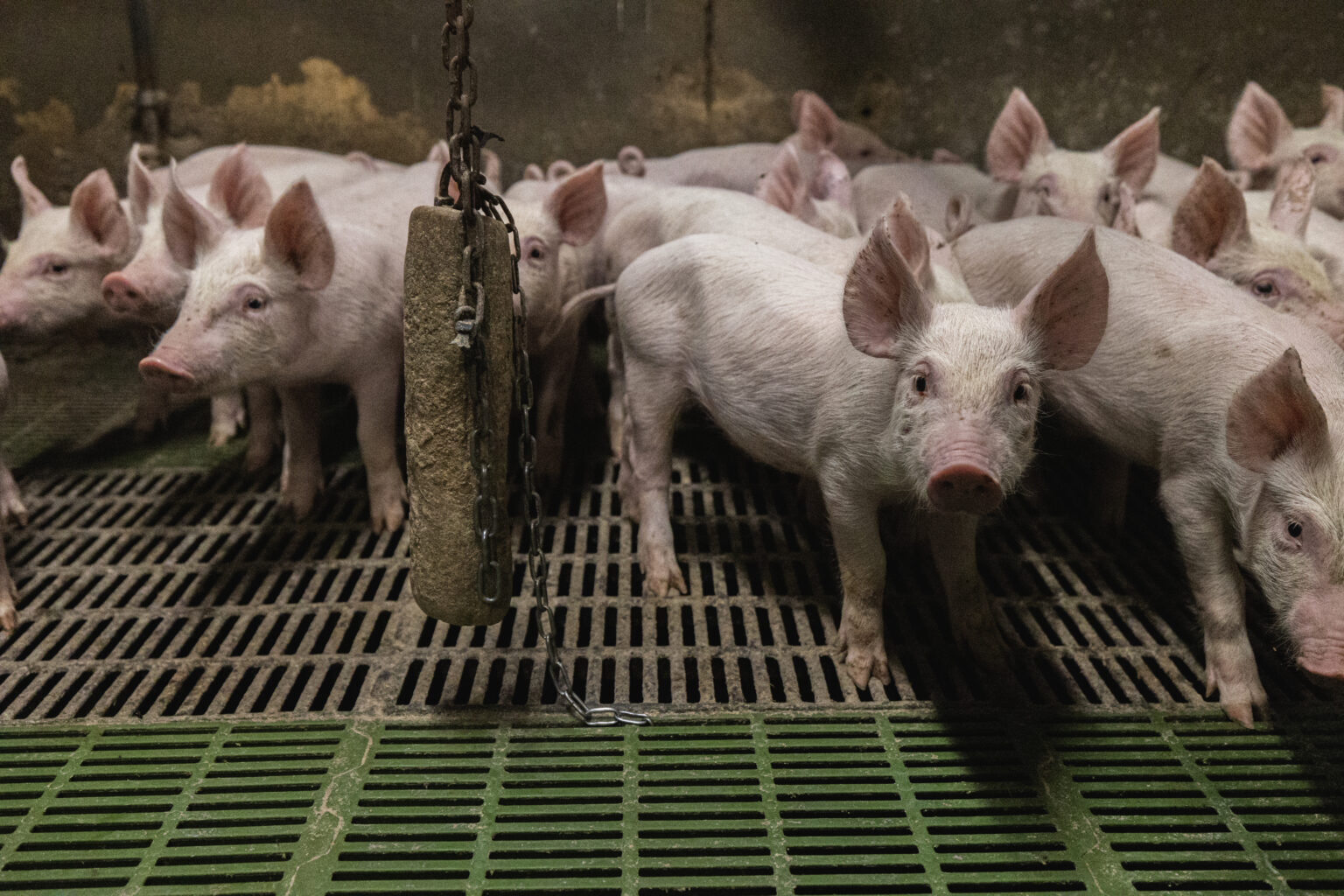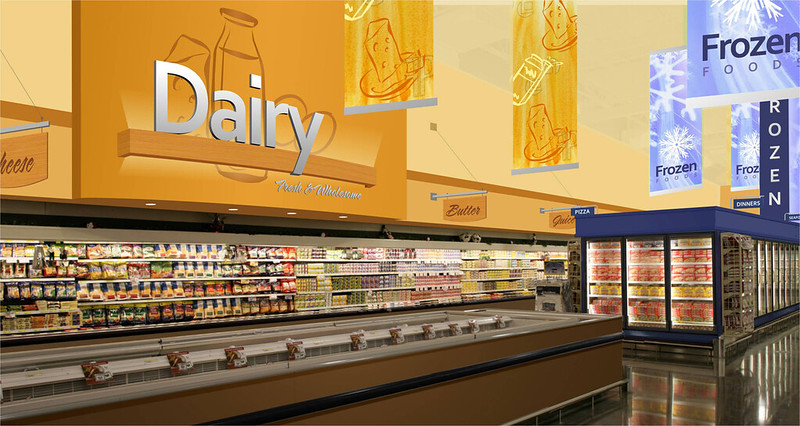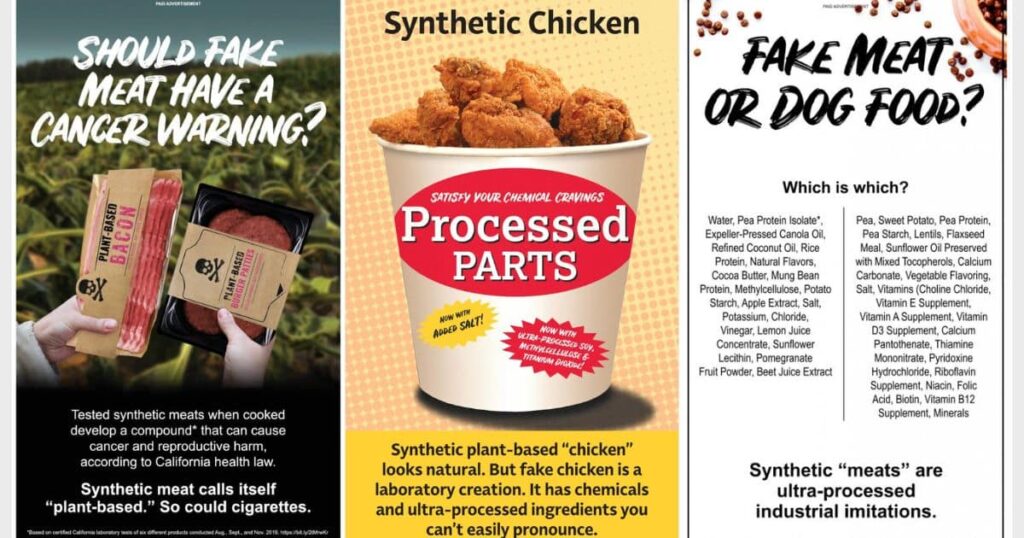In September 2019, a group appeared on the Brussels political scene pledging to “bring back a balanced debate” about the benefits of meat and dairy.
Known as European Livestock Voice, it describes the European Union’s livestock farming model, “based on diversified, local and family farm structures,” as the “backbone” of the continent’s rural areas, writing on its website under the url “meatthefacts”.
Alongside its answers to Frequently Asked Questions on topics such as “animal welfare” and “farming and rural life,” the group promises to tackle “misinformation” by offering facts “from the boots on the ground.”
But the campaign doesn’t only speak for farmers.
Its 14 members are all trade associations, which represent some of the largest meat and dairy companies in Europe, including French dairy giants Sodiaal and Danone, and the pork conglomerate Danish Crown. Also represented are farming union Copa Cogeca, animal feed companies and the veterinary medicines industry, including U.S. corporations such as Zoetis and Elanco, which serve a multi-billion euro market for livestock drugs.
In January 2022, the EU introduced world-leading laws to curb on-farm use of antibiotics, an integral component of intensive livestock farming where they are used in large volumes to prevent or treat outbreaks of disease among animals kept in crowded conditions. The World Health Organisation lists the overuse of these drugs on farms as a major risk factor for the emergence of deadly treatment-resistant bacteria in humans, known in medical jargon as antimicrobial resistance (AMR).
With the focus now turning to implementing the new rules in the EU’s 27 member states, campaigners fear the industrial farming lobby will push back against legally mandated reductions in antibiotic use, by deploying “narratives of delay“, which were identified in an investigation also published today by DeSmog.
European Livestock Voice uses a selection on these arguments on its website. They include: risks to animal welfare and the idea that voluntary measures by industry will suffice.
Animal rights advocates pushing for stronger restrictions say European Livestock Voice is emblematic of big business front groups active in Brussels that tread a fine line between public campaigning and behind-the-scenes lobbying to promote corporate interests.
“European Livestock Voice claims to speak on behalf of farmers, but the reality is very different,” Olga Kikou, the head of European affairs at campaign group Compassion in World Farming told DeSmog. “This is Big Agri and Big Pharma collaborating to keep a system alive that exploits the maximum number of animals.”
European Livestock Voice says on X (formerly Twitter) that it faces “sensationalist” and “misleading” accusations from critics, claiming it wants only to bring some “balance” to the debate on the future of livestock. “We won’t tell you what to think or to do but it is essential that you get the two sides of the story, because when you make a choice, you also choose all its consequences! #MeattheFacts,” the group wrote on its website.
Role of Veterinary Medicines Industry
Campaigners say that an alliance of veterinary medicine and agribusiness lobby groups have sought to cast themselves as allies of the continent’s farmers in order to weaken the EU’s 2021 flagship sustainable farming Farm to Fork strategy, which includes targets to halve antibiotic use.
In 2021, European Livestock Voice launched a series of videos about the “paradoxes” of the Farm to Fork strategy, which also aim to slash emissions from the farming sector. “Meat is increasingly the scapegoat when it comes to CO2 emissions,” they said, suggesting that the proposed EU measures could endanger food security and employment.
Trade groups that represent the veterinary medicines industry have played a significant role in European Livestock Voice, from hosting its website to helping create key communications on proposed European Union laws.
A review of public website domain names data reveals that meatthefacts.eu is registered to veterinary medicines trade group HealthforAnimals, a Brussels-based industry umbrella organisation representing companies and trade associations that carries out lobbying activities worldwide.
European Livestock Voice told DeSmog that the website registration was a “clerical error made by an administrative assistant during our campaign website registration” that they planned to “correct” following DeSmog’s queries.
HealthforAnimals, which told DeSmog it has no connection to the group, is closely linked to another lobby outfit that is a member of European Livestock Voice, called AnimalhealthEurope.
AnimalhealthEurope represents many of the same companies as HealthforAnimals (including Zoetis and Elanco) and the two organisations share a registered address in the heart of Brussels.
DeSmog’s analysis of PDF documents on the Meat the Facts website found that employees from AnimalhealthEurope were linked to multiple public documents published by European Livestock Voice.
AnimalhealthEurope’s general-secretary, Roxane Feller, was listed as the ‘creator’ of an open letter published in March 2020 on the EU’s sustainable Farm to Fork Strategy. The letter called for the livestock sector to be given a “voice” in negotiations and for the EU to restore “confidence in the integrity, quality and safety of EU livestock products.”
AnimalhealthEurope was also linked to European Livestock Voice’s 2020 report about its webinar titled, “Is livestock really destroying the planet?,” which listed Clare Carlisle, communications director for AnimalhealthEurope, as the creator of the document.
A spokesperson for European Livestock Voice told DeSmog that all partners “share the tasks of drafting letters, communications.” Regarding Farm to Fork, they stated, “we have questioned the lack of an impact assessment and clear directions/support for achieving the objectives outlined, and called for sectoral involvement.”
AnimalhealthEurope said that its members’ figures showed “a continuous downward trend in sales of antibiotics.” “Some of our member companies still produce antibiotics as they are the only way to treat bacterial infections in animals, but many companies are investing more in preventive tools and new technologies, etc,” it said.
Failure to Register as a Lobby Group
Any organisation seeking to influence EU policy is required to list itself in a “transparency register”, which is maintained jointly by the European Parliament, European Commission and European Council. This requires declaring their total EU lobbying budget as well as sharing other information about lobbyists working on their behalf.
The European Livestock Voice Campaign has not registered as a lobby organisation in the EU, according to DeSmog’s review of the EU transparency register and the LobbyFacts database.
However, critics say the group’s activities clearly constitute lobbying, particularly in relation to Farm to Fork.
Minutes of a closed-door meeting between European Livestock Voice and Frans Timmermans, who was then vice-president of the European Commission in charge of spearheading Farm to Fork, reveal that the strategy was discussed. In the meeting, the group warned against the “influence of fake news and over-simplification on political decisions,” according to documents made public via a Freedom of Information request in November 2021, now available on the AsktheEU website.
During their audience with the Commissioner, AnimalhealthEurope also said the sector was “fully committed” to the antibiotic reduction target, the Freedom of Information request showed.
In 2019 European Livestock Voice also held a launch event in parliament with the support of MEPs and staged a “flash action” where policymakers and supporters burst balloons carrying “common myths or misinformation” outside the parliamentary building.
“It seems obvious that ELV should have joined the EU lobby register,” Vicky Cann from lobby watchdog Corporate Europe Observatory told DeSmog. “The register is quite clear that groups organising communication campaigns on EU policy must be on the transparency register, especially when it includes meeting with Commissioners.”
EU transparency rules state any group should register if they have “the objective of influencing the formulation or implementation of policy or legislation, or the decision-making processes”, including through “meetings”, “open letters” and “communications campaigns”.
Cann added that “the register is also toothless as it cannot force lobbyists to sign up”. Organisations face limited sanctions, although guidance states that unregistered groups should not be able to meet with MEPs, and since September 2023, they can no longer hold events within parliament.
European Livestock Voice wrote on Twitter in October, “As far as the transparency register is concerned, we’ve also been very clear: European Livestock Voice is a comms platform which does not do policy work.”
A spokesperson for European Livestock Voice added in an email to DeSmog, “As European Livestock Voice is just an umbrella platform and not a legal entity, it was not considered necessary to register the platform on top of each association already being registered.”
The group also stated: “We try to contribute to the debate by being transparent about who we are, by presenting the vision of farmers, agronomists and academics, and by using certain comms methods inspired by others campaigning.”
The coalition also does not disclose sources of funding on its site. It told investigative outlet Lighthouse Reports that its members provided between €1,000 and €5,000 annually to fund its activities, clarifying on its Twitter that this covered “comms activities.”.
A spokesperson for European Livestock Voice told DeSmog: “AnimalhealthEurope, like several other partners, provides €5,000 annually for the running of the campaign and admin or comms support as necessary, just like the other associations.” HealthforAnimals stated that it did not provide any funding for European Livestock Voice.
‘Narratives of Delay’
DeSmog found that European Livestock Voice uses arguments that are commonly employed by veterinary medicine groups to oppose what they describe as excessive regulation of antibiotic use.
European Livestock Voice used four out of eight “delay narratives“, which were identified by DeSmog today via analysis of communications published by the group and four other groups from the farming and veterinary medicine sector.
The arguments used by European Livestock Voice to oppose a reduction included:
- Warning that further restrictions on farm antibiotics were “nonsensical” and pose a risk to animal welfare.
- Emphasising that human antibiotic use is the key risk to causing antimicrobial resistance, not its use on farms.
- Suggesting that reducing antibiotics could increase the risks of both zoonotic diseases (that jump across species) and of AMR by “accelerating resistance to those few antibiotics available”
- Stating that the industry has already taken sufficient voluntary action: “We need to work together and stop blaming the livestock sector.”
Jennifer Clapp, a professor of global food security and sustainability at the University of Waterloo told DeSmog that these kinds of narratives were common among industries keen to avoid regulation. “They try to convey that a change in policy won’t work, that it will create the exact opposite of the intended outcome, and that it will jeopardise other goals,” she said.
Around 700,000 deaths are caused by antimicrobial resistance worldwide each year. According to a 2016 report by the Wellcome Trust and UK government, annual deaths could grow to 10 million by 2050 – a number higher than the amount of people who currently die from cancer – without stronger policies to counter the emergence of new superbugs.
Subscribe to our newsletter
Stay up to date with DeSmog news and alerts







